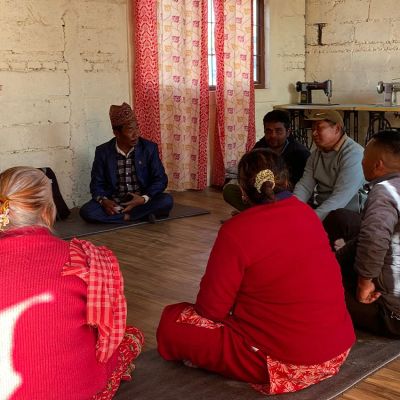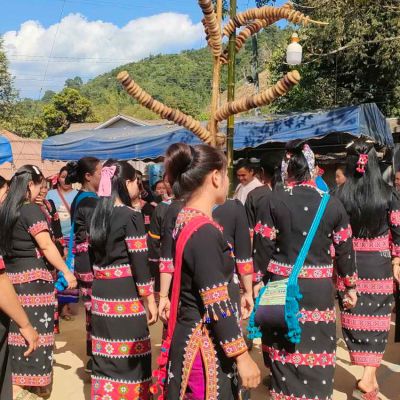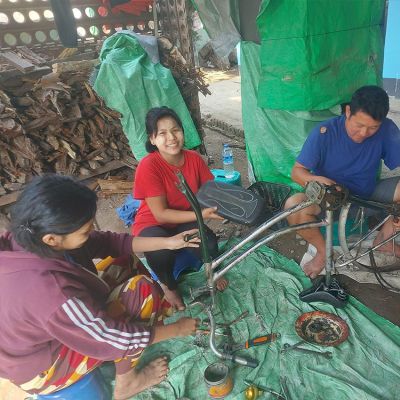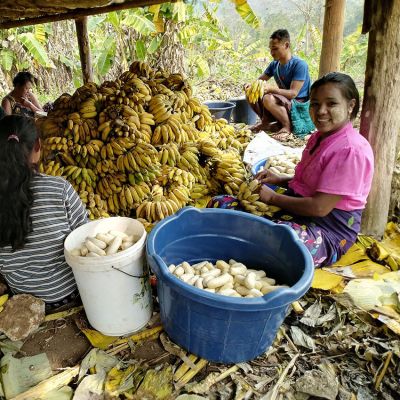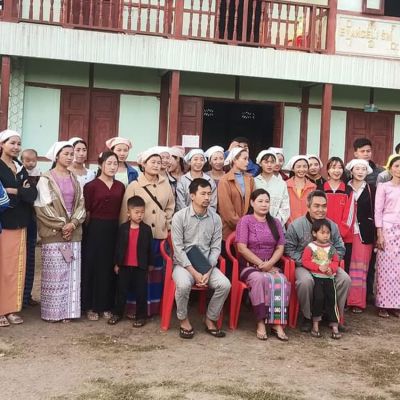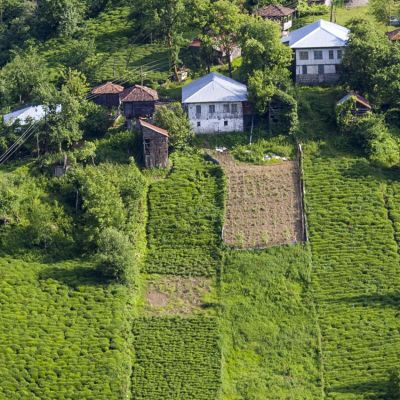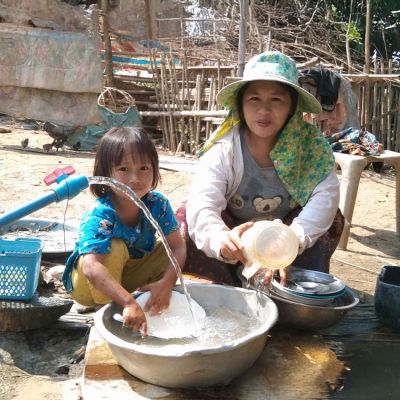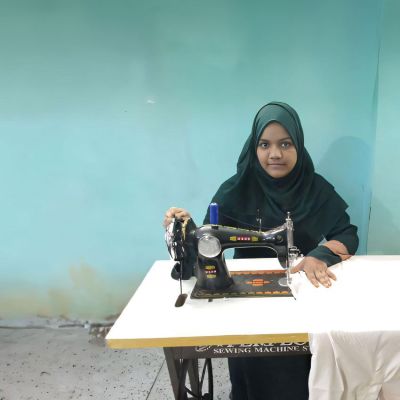Slums are a phenomenon of economic takeoff and rapid urbanisation in some developing countries, and they are also a symbol of inequality between the rich and the poor. Next to the modern skyscrapers, there are a dense pile of old houses. Sewage, narrow alleys, and broken walls have become ‘scene panels’ for poor areas; the tourists’ cameras reflect helpless and lost faces.
Poverty is not a problem to be solved overnight. Only by allowing poor friends to discover their potential and realise they are also self-sufficient can people on the poverty line’s edge live with dignity. CEDAR provides resources for low-income families in different countries to learn livelihood skills. Also, it supports religious, family relations and financial management so that they can see a little light in their hard days.
As for remote mountainous areas, due to the underdeveloped local communication and transportation network, it takes work for residents to obtain public resources and development opportunities. However, villages often have abundant natural resources, such as arable land, seawater and other water sources. If villagers learn how to use what God has given them effectively, they can also be self-reliant and develop.
CEDAR provides agricultural training and education, financial management training for the rural poor, and supports community health care.
‘But whoever is kind to needy honours God.’ (Proverbs 14:31b)
Urban and Rural Development Projects
donation method
(Please specify: ‘Development & Advocacy’)
Cheque
Please make it payable to CEDAR FUND
Direct Deposit
HSBC: 004-600-385678-001
BEA: 015-185-68-00931-7SSA
BOC: 012-581-2-020114-7
DBS: 016-478-001364162
Faster Payment System
FPS ID: 3354016 or scan the below code in the online banking
After donation, please send a completed Donation Form, enclosing with cheque, bank-in slip or screenshot of successful payment along with your name, contact phone number and mailing address to us via mail, email or WhatsApp.
Address: CEDAR Fund, G.P.O. Box 3212, Hong Kong
Email: sharing@cedarfund.org
WhatsApp (for donation matters only): 5160 7549
- CEDAR is an approved charitable institution and trust of a public character under section 88 of the Inland Revenue Ordinance. Please visit Inland Revenue Department website for details.
- CEDAR Fund will issue a receipt for a donation of HK$100 or above for tax deduction. For a donation of less than HK$100, please get in touch with us to issue a receipt.
- Please DO NOT fax any donation information.



